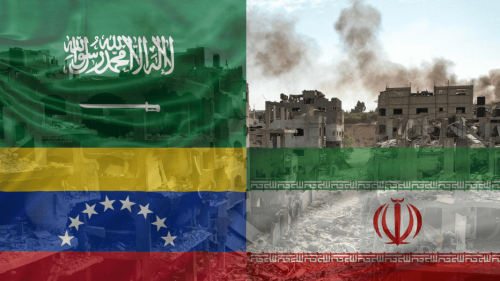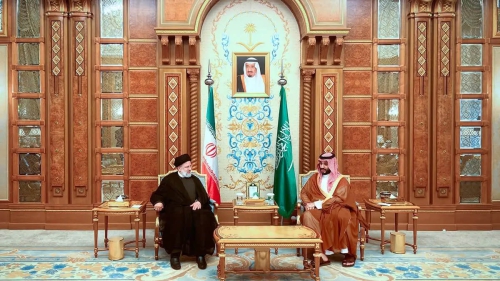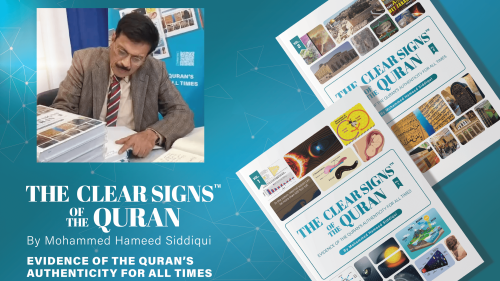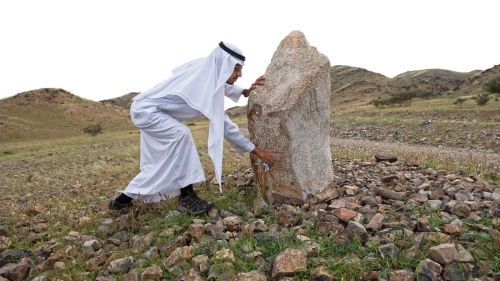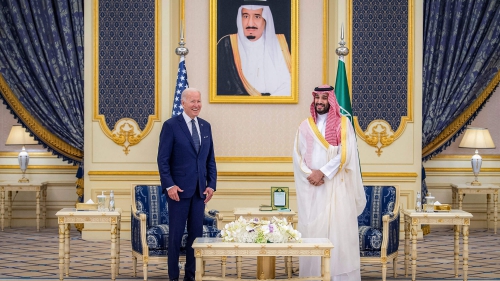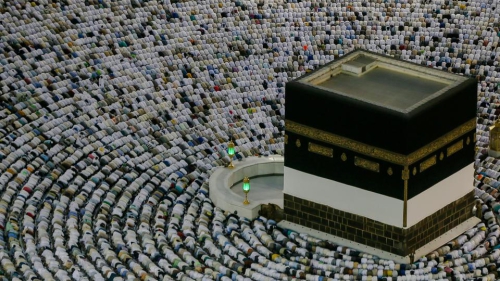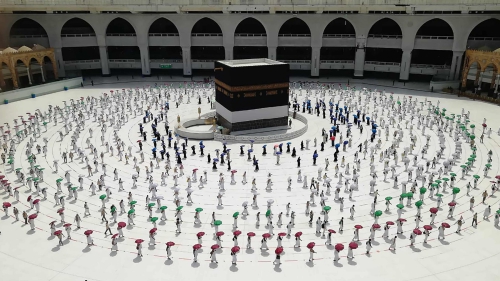As we move past another milestone
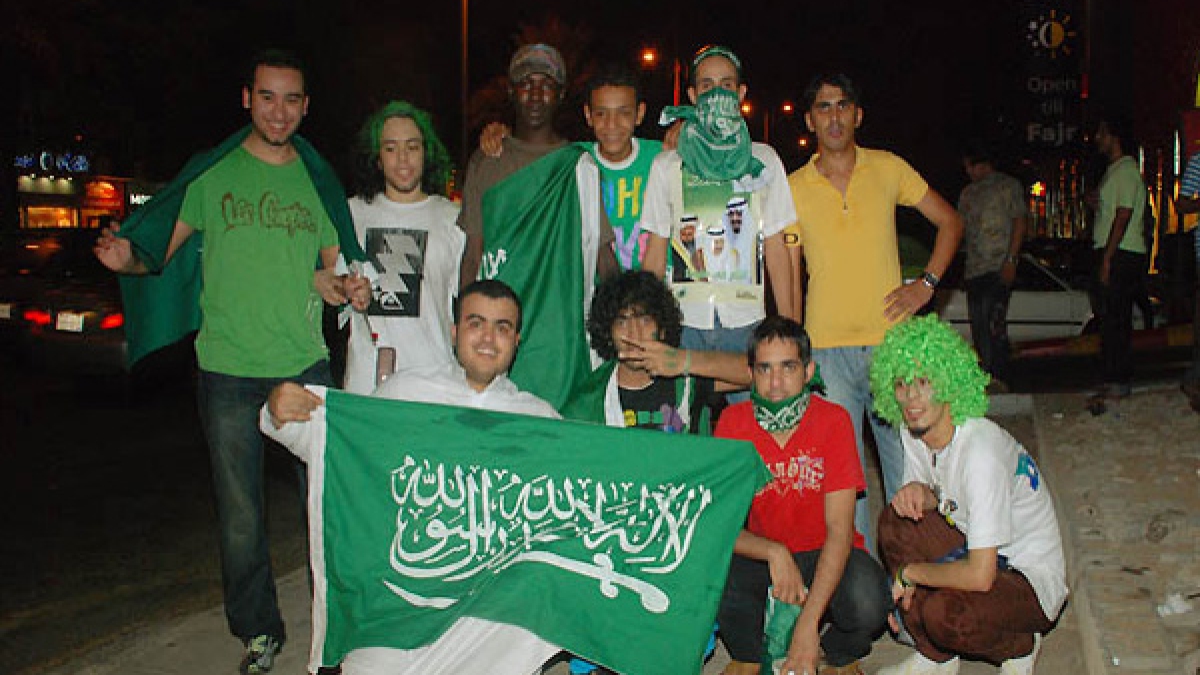
[September 23, 1997 was] the National Day of the Kingdom of Saudi Arabia. Sixty-five years [had] passed into history since the Kingdom of Saudi Arabia appeared on the map of nations as a sovereign entity. On this day, as we move past another milestone in our nation's life, we owe it to ourselves, our past and our future to pause briefly and survey the terrain we have left behind as well as that which is still ahead.
We look[ed] back not to indulge in an orgy of self-glorification but in order to draw inspiration from the achievements of those whose vision transformed a vast expanse of uncharted desert into a modern state: to draw lessons from the experience of independent tribal units that were welded into a single nation, and to learn afresh how to keep in our hearts and our children's hearts a national consciousness that transcends all narrow loyalties.
Sixty-five years, reckoned in terms of numbers, represents only a short span in a nation's life. Reckoned, however, in terms of the changes those years have produced in our lives, each one of the sixty-five was itself an epoch. Decades of development were telescoped into months. The pace of that progress is such as has been known by few nations in history. The story of that exciting journey, catapulting us from one age to another, has been told and retold countless times and will continue to be told. In retelling the story, we hold on to the roots we spring from and remind the coming generations that what they behold about them did not just "happen". Sweat and blood went into the building and hard labor put every brick in place and shouldered every boulder and obstacle away. The credit for determining the nature and direction of that labor goes to the vision of one man who could see far ahead of his time: Abdul Aziz ibn Abdul Rahman Al-Saud. Born to lead, he was of that rare breed of men who could move forward with the times and yet never lose touch with his roots. Uniting virtually the entire Arabian peninsula under one government was in itself a stupendous achievement - something which had not been done since the time of the early Caliphs. Historic though that achievement was, of all the challenges Abdul Aziz had to overcome, that was perhaps the easiest. A great general with a strong army might have done it. But what no general or army could do was to build a nation. That is not done by swords or guns and not in a weekend by a royal decree. A nation is much more than a geographical entity: It is a state of mind and Abdul Aziz slowly and painfully built that state of mind. Tribes which for centuries had acknowledged no temporal authority other than their chiefs had to be persuaded to submit to a central power. They had to be convinced that their welfare lay not in confrontation but in cooperation. Time and again it had to be demonstrated to them that the Kingdom had been formed to promote the welfare of all its citizens.
The introduction of the Shariah eliminated the law of the jungle. Brigands and highwaymen could no longer swoop down on unsuspecting caravans. Education, health care, social welfare programs - all these need time to take root and grow. The scale and pace of the original reforms had to be modest because the resources were small. There was no infrastructure, no money, no qualified manpower. All that was there, and that in plenty, was determination.
And that very determination is what made the Kingdom what it is today.
Even in those long-ago days of limited financial resources, the Kingdom played its role in both Arab and international affairs. It was a founding member of the Arab League as well as of the United Nations. While non-interference in the internal affairs of other nations is a basic tenet of its foreign policy, it has never hesitated to shoulder its responsibilities toward other nations and other peoples. There are few developing nations in the world in Africa or Asia which have not benefited from the development aid given by the Kingdom through its various agencies. Wherever there is human misery - in Somalia, Bosnia, Bangladesh, Pakistan, or anywhere - the Kingdom has extended the hand of generosity. Whenever there were attempts by small-time dictators to play the local bully, the Kingdom has stood on the side of right and justice. The role it played in marshaling an international alliance to force the aggressor out of Kuwait is still fresh in our memory. As a result of this consistent policy, the voice of the Kingdom is heard with respect in international forums, not because of the resources it possesses but because its voice is that of reason, logic, statesmanship and maturity, rather than of demagoguery and hysteria.
That is the world we have inherited, the achievement of our yesterdays. What of our tomorrows? Here is the question we seek to answer now, as we pass the sixty-fifth milestone in our journey. What of the road ahead? Is the generation that is to walk that road of a mettle to stand the strain of journeying along that path?
The answer to that question will determine whether we end up as a people whose glory was all in the past, a people with little present and no future.
All but a few of the generation of pioneers and nation-builders who fought human and intangible enemies - weather, sand prejudices - to fashion this nation are gone from among us. They have bequeathed to us not only the fruits of their labor but also the spirit of that labor. They were not the sort who believed the world owed them a living. They were the children of the desert. And the desert, where life itself is a struggle, where the share of the indolent is death, supports no weakling.
Have we bred a generation strong enough to claim the legacy left us by our forefathers? Our children will be called upon to face the challenges of a world changing so fast that the greatest living scientist refuses to predict what our lives will be like tens years hence. What we can be sure of is that that world will not be inherited by the lazy. It will be the possession of those who are willing and equipped to walk ahead of the caravan, to march ahead of the times.
Many among us have known only an easy life made possible by the oil bounty nature has given us. I am afraid that a sizable section of our young people believe that success comes to those who laze about, issuing commands. It doesn't. It never has. All of human history records the truth of this.
Some of our own professional demagogues have duped us with a dangerous theory. They would have us believe that the gulf separating us from the developed world is the result of a conspiracy hatched by Westerners or imperialists or colonialists or whomever. Drugged thus, we waste time and energy abusing everyone ahead of us, in the hope that it will cure us of our paralysis. It has not, and it will not. Even as we sit looking for conspiracies and fighting windmills, others are marching ahead, increasing their lead.
If there is a conspiracy against us, it is a conspiracy hatched by ourselves, a conspiracy of inertia and laziness. Given the choice between hard work and finger-pointing, we have chosen the latter easier option. That may excuse us for staying behind the line but it will never take us one step further. That is the real conspiracy we must defeat. And the only way to do so is to start working, to prepare our young to be a part of the age of science and technology, to teach them to shoulder responsibility, to walk their share of the miles ahead.
The Kingdom has been blessed with continuous security and stability. At the helm of affairs are people who are carrying out the task of governing with dedication, love and concern for the people. Their aim of creating a welfare state has been realized. Yet they look to greater heights. We all, especially the young, should realize this and be grateful.
That is the way to the horizon. And the time to take the first step is now, today, as we prepare to celebrate the birthday of our nation.









